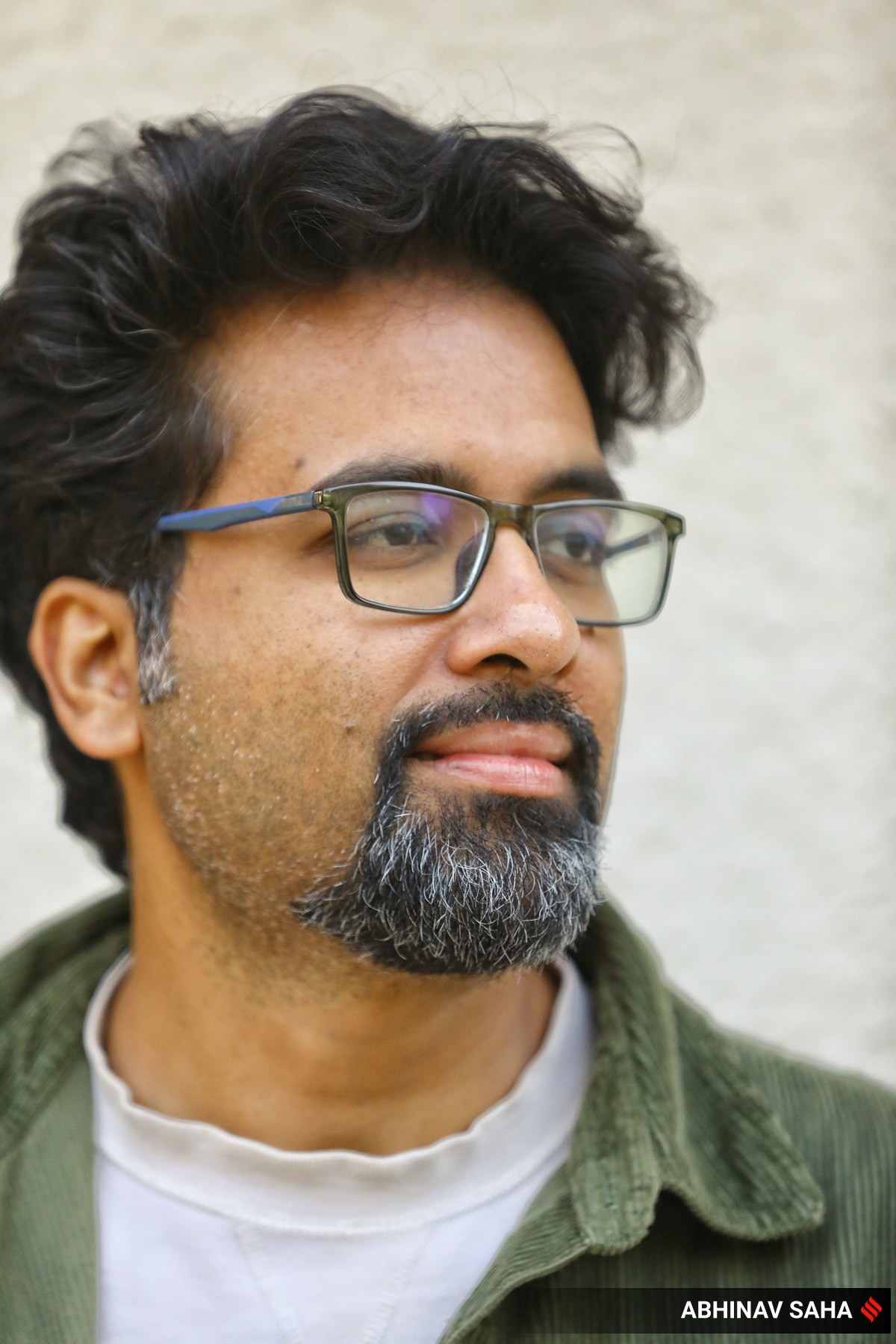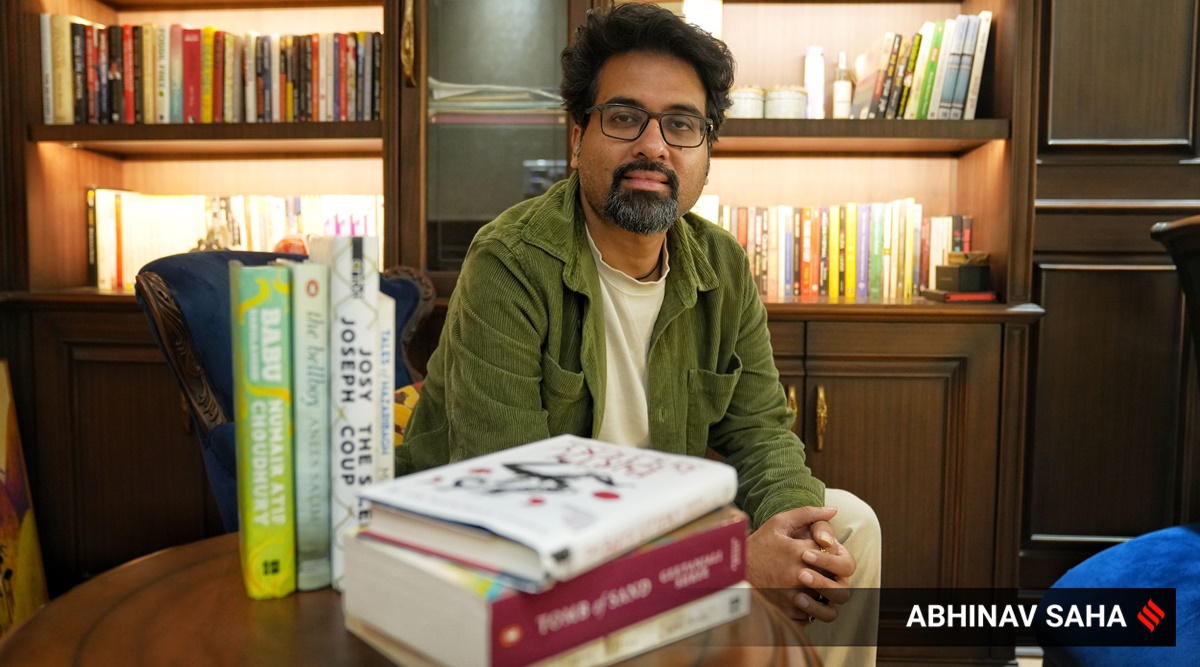If he were to put a finger on it, it would be two correspondences that changed the course of Kanishka Gupta’s career. The first, with a Scottish literary agency to whom he had sent the manuscript of his fledgling novel when he was struggling for advice over his own writing, and the second, a letter from a certain Hasina Mansoor, a few years later, that would set the ball rolling for Writer’s Side, the literary agency that Gupta set up in 2010 and that has grown to become arguably the largest in South Asia.
But, back to the beginning, when the Scottish literary agency turned out to be a catfish, who swindled Gupta out of money before ghosting him, and Mansoor, who proved to be somebody else, too, though in a more propitious way. By that time, Gupta knew he’d found his vocation. In the Indian literary landscape of the early 2000s, with only the behemoths of international publishing, Penguin and Harper Collins, holding sway, and a handful of indie publishers and literary agencies trying to make inroads, there was little assistance forthcoming for the first-time writer. “If you wrote to the publishing houses, it would be ages before you heard from them, if at all; there were about two literary agencies in India, but they were equally difficult to get through to. Who could you turn to find out how to send manuscripts in the first place, let alone for feedback?” says Gupta, 40, who set up Writer’s Side, first as a manuscript assessment service in 2008, before he moved on to representing writers.

 In the country’s literary circuit, especially for those writing in English, Delhi-based Gupta is a familiar name (Express photo by Abhinav Saha)
In the country’s literary circuit, especially for those writing in English, Delhi-based Gupta is a familiar name (Express photo by Abhinav Saha)
In the country’s literary circuit, especially for those writing in English, Delhi-based Gupta is a familiar name. His roster of clients include this year’s International Booker Prize-winning translator Daisy Rockwell; he holds the South Asia representation rights of the short-story collection, The Birth Lottery and Other Surprises (Hachette) and an upcoming novel of this year’s other Booker winner, Sri Lankan writer Shehan Karunatilaka.
From Avni Doshi, whose debut novel Burnt Sugar (Girl in White Cotton) made it to the 2020 Booker Prize for fiction shortlist to Windham–Campbell Prize-winning author Jerry Pinto, from this year’s Sahitya Akademi Yuva Puraskar winner Mihir Vatsa to Rijula Das, winner of the First Book Award at the 2021 Tata Literature Live! and longlisted for the 2021 JCB Prize for her debut book, A Death in Shonagachhi (Picador), his clients include some of South Asian literature’s most feted names.
Yet, in the beginning, books were only a means to find his way back into life. After school, struggling with mental-health issues, he had signed up for a BBA course, but his heart was not in it. “I began writing in an attempt to make sense of my depression. I am privileged to have parents who gave me the time to figure out what it is I wanted to do. I would read all kinds of books, go to bookstores and observe how they worked. I would read interviews and articles. I was part of writing groups on Yahoo, where first-time writers came together to vent and make fun of each other’s writing and generally be miserable together. I was subconsciously picking up stuff about publishing. So, even before I joined it in a proper way, I was very familiar with the ecosystem,” he says. Around this time, a family friend introduced him to writer Shobhaa De, who read his manuscript and was kind enough to overlook the “bad writing, full of purple prose, similes and metaphors” and remark on his potential, taking out time to introduce him to more people from the fraternity. He’d also reached out to Mita Kapur of Siyahi, one of India’s early literary consultancies, who took him on for a voluntary internship. “Looking back, each part of the journey over those four years between 2004 and 2008 was fruitful. I owe a lot to the Indian publishing industry that let someone like me come up. Mita introduced me to Namita Gokhale and I worked with her as a researcher for a while. She introduced me to more people. I edited magazines, read manuscripts and learnt a lot through experience,” he says.
In 2009, a year after setting up Writer’s Side, Gupta managed a writing coup for himself. His novel, History of Hate (Rupa Publications) was longlisted for the Man Asian Literary Prize, a prestigious annual literary prize that ran between 2007 and 2012 and was given to an Asian writer for an unpublished work written or translated into English. “And because of the nomination, someone else wrote to me,” says Gupta.
It was the email itself that first piqued his curiosity: “My name is Hasina Mansoor, and I have been a part of the Indian aviation industry for the last couple of years. No, I am neither an air-hostess nor someone you will find behind a check-in counter. You will find me somewhere between the workplaces of these two. I am a sales girl at a tea vending machine. The immediate neighbour of this vending machine is a well-stocked bookstall, and the sight of books has inspired me to write. Tales from a Vending Machine is my life story, though I sincerely wish it happened to someone I hate. Would you like to read a few chapters? Please let me know,” it read.
Intrigued, Gupta agreed to read the manuscript. Mansoor turned out to be the reclusive Kerala-based author Anees Salim, who was finding it difficult to get a response for his new manuscript, Tales from a Vending Machine, and had written to him in the voice of his protagonist. Salim became the first writer Gupta signed up for representation, and there has been no looking back since.
Most Read 1Mela director wept as Aamir Khan insisted on doing a ‘vulgar’ scene, Kajol refused film as she had ‘reservations’ about actor 2Leo box office collection day 6: Thalapathy Vijay’s blockbuster is now the biggest film in the Lokesh Cinematic Universe, the fourth-biggest Tamil film in history 3Leo box office day 6 early reports: Vijay’s film witnesses a dip 4‘Homebuyers unprotected and left to builders’ mercy’: Court orders DK Shivakumar, kin to return Rs 17 lakh 5Australia vs Netherlands Highlights, World Cup 2023: Glenn Maxwell-Adam Zampa star as AUS demolish NED by 309 runs
In the time since he set up his agency, the publishing scene in India has undergone significant change.
New independent publishing houses have come up, making it possible for different kinds of writing to find space. South Asian writing in English has swept major international literary awards, bringing in foreign literary agents looking for new talents. The competition is intense, and Gupta has had to expand his team to manage the diversity of work. But, what has worked in his favour, he says, has been the fact that his agency is genre agnostic. “From out and out commercial non-fiction to literary fiction to translations to graphic novels and children’s books, I never say no to anything, if the writing is good or if the writer has potential. I am willing to do niche projects or not make money over a book if I feel that the writer will go places,” he says.
Also Read‘Job of a scholar is not to become a politician’: Ramachandra GuhaFive poets to read from Palestine and IsraelBook Lovers Day: Top 10 best-selling books of all timeFive books to read on the Israel-Palestine conflict
📣 For more lifestyle news, follow us on Instagram | Twitter | Facebook and don’t miss out on the latest updates!
© The Indian Express Pvt Ltd



